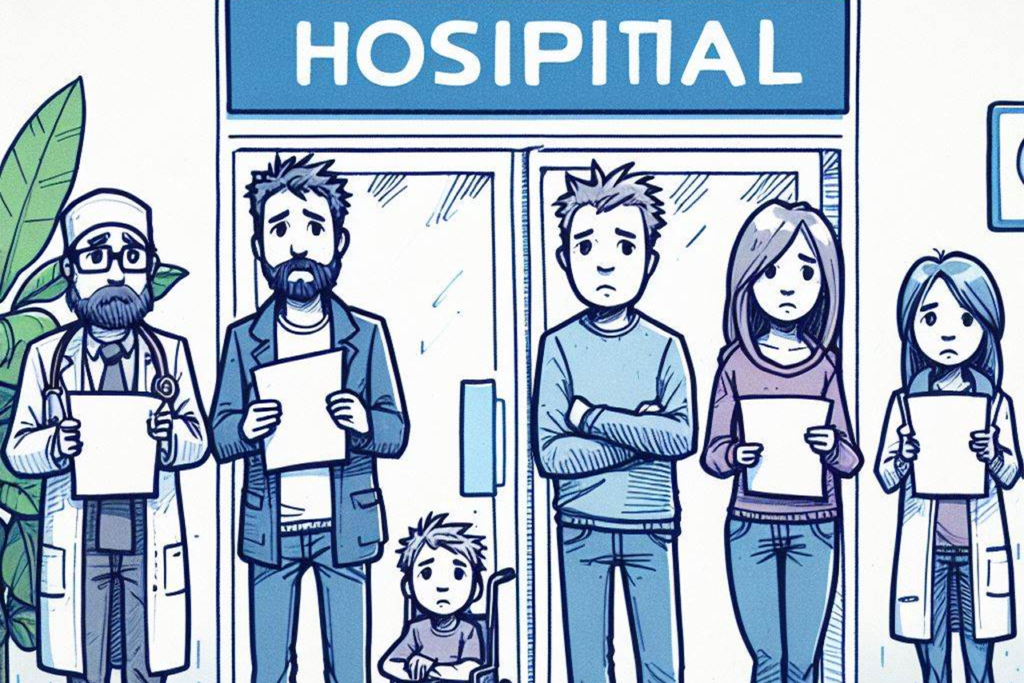Subsidizing jobs has a positive effect on the employment of socially disadvantaged segments of the population and their integration into the labor market. Refugees also belonged to this group, however with 1 July the employment law was amended.
Wage subsidization is a kind of cashback for the employer. He pays the salary, part of which is returned to him. Percentage and social groups, who may qualify for subsidized places, is established by the Employment Act 41 art. 2 d. And 25 str., respectively.
Since 1 July 2024 amendments came into effect, those who changed the list of those, who can apply for a subsidized place. Among them were people, having refugee status. They are no longer included in the new version of the law..
| Was | It became |
| The following persons are considered additionally supported in the labor market: | |
| 1p. | unemployed, who are persons of working age with disabilities, in respect of which the level of working capacity is established up to 25% or severe disability; | 1p. | unemployed, who are disabled people of working age with a working capacity of up to 25% (To 31 December 2023 years - 0-25% level of working ability) or severe disability (To 31 December 2023 year – severe disability); |
| 2p. | unemployed, who are persons of working age with disabilities, for which the level of working capacity is set at 30–40% or an average degree of disability; | 2p. | unemployed, who are disabled people of working age with a share of working capacity 30-40% (To 31 December 2023 years - 30-40% level of working ability) or moderate disability (To 31 December 2023 year – moderate disability); |
| 3p. | unemployed, who are persons of working age with disabilities, for which the level of working capacity has been established 45-55% or mild disability; | 3p. | unemployed, who are disabled people of working age with a working capacity of up to 45-55% (To 31 December 2023 years - 45-55% level of working ability) or mild disability (To 31 December 2023 year – mild disability); |
| 4p. | unskilled unemployed, who have not acquired any professional qualifications or the professional qualifications they acquired abroad are not recognized in accordance with the procedure, established by laws, regulating the recognition of professional qualifications, as well as the unemployed, who do not have any informally acquired competence, recognized in order, established by laws regulating the recognition of acquired competence; | |
| 5p. | long-term unemployed up to 25 years, whose duration of unemployment exceeds 6 months, and long-term unemployed 25 years, whose duration of unemployment exceeds 12 months when calculated from the date of registration with the Employment Service; | 5p. | unemployed, which during the last 6 months were not employed under an employment contract or legal relationship, equivalent to an employment contract, and were not self-employed; |
| 6p. | unemployed older 45 years; | 6p. | unemployed older 50 years; |
| 7p. | persons, entitled to additional employment guarantees in accordance with the Law of the Republic of Lithuania on additional employment guarantees and social guarantees for employees of the State Enterprise Ignalina Nuclear Power Plant; | — |
| 8p. | unemployed under the age of 29 years; | 7p. | unemployed 16-24 years; |
| 9p. | unemployed, who are starting work for the first time in accordance with the acquired qualifications or competence; | 8p. | unemployed, who are looking for work for the first time, qualified no more than 2 years ago; |
| 10p. | persons, who have been granted refugee status or displaced person status, or faces, who have been granted subsidiary or temporary protection, and faces, eligible for temporary protection, before making a decision to provide (failure to provide) temporary protection, however, no more than for the period of temporary protection; | — |
| 11p. | pregnant women, mother (foster mother) or father (foster father) baby, child's guardian, trustee and persons, actually raising a child (adopted child) under the age of 8 years or child (adopted child) under the age of 18 years (to 1 July 2005 G. recognized as a disabled child), and faces, supervising family members, having an illness, which, by decision of the Service for Determining the Degree of Illness and Working Capacity under the Ministry of Social Protection and Labor (hereinafter referred to as the Service for Determining the Degree of Illness and Working Capacity) the need for ongoing care and supervision has been established; | 9p. | mother (foster mother) or father (foster father) baby, foster parent, guardian, persons, actually raising a child (adoptive parent) under the age of 8 years or child (adopted) with disabilities under the age of 18 years alone, as well as faces, caring for family members with disabilities, which, by decision of the Agency for the Protection of the Rights of Persons with Disabilities under the Ministry of Social Protection and Labor of the Republic of Lithuania (further – Disability Rights Agency) compensation for expenses for individual assistance has been established; |
| 12p. | persons, those returning from prison, if the term of imprisonment was not less than 6 months, if they contact the Employment Service no later than within 6 months from the date of return from prison; | — |
| 13p. | persons, addicted to drugs, psychotropic and other psychoactive substances, graduates of psychological programs, social and (or) vocational rehabilitation, if they contact the Employment Service no later than within 6 months after completing the psychological program, social and (or) vocational rehabilitation; | — |
| 14p. (10p.) | employed persons, which, in accordance with the paragraph 2 parts 1 articles 47 The Labor Code of the Republic of Lithuania declared the case simple; | |
| 15p. | expired with 01-07-2021; | |
| 16p. | persons with disabilities of working age up to 25% or severe disability, who were employees of a social enterprise as of 31 December 2022 years and whose employment contract with the employer, having the status of a social enterprise, not terminated; | 11p. | working age disabled people with working ability level 0-25% (to 31 December 2023 year: level of working ability 0-25%) or severe disability (to 31 December 2023 year: severe disability), which are on 31 December 2022 have been employees of a social enterprise for years and have a continuous employment contract with the employer, having the status of a social enterprise; |
| 17p. | persons with disabilities of working age up to 30-40% or severe disability, who were employees of a social enterprise as of 31 December 2022 years and whose employment contract with the employer, having the status of a social enterprise, not terminated; | 12p. | working age disabled people with working ability level 30-40% (to 31 December 2023 year: level of working ability 30-40%) or moderate disability (to 31 December 2023 year: moderate degree of disability), which are on 31 December 2022 have been employees of a social enterprise for years and have a continuous employment contract with the employer, having the status of a social enterprise; |
| 18p. | persons with disabilities of working age up to 45-55% or severe disability, who were employees of a social enterprise as of 31 December 2022 years and whose employment contract with the employer, having the status of a social enterprise, not terminated; | 13p. | working age disabled people with working ability level 45-55% (to 31 December 2023 year: level of working ability 30-40%) or mild disability (to 31 December 2023 year: mild disability), which are on 31 December 2022 have been employees of a social enterprise for years and have a continuous employment contract with the employer, having the status of a social enterprise; |


